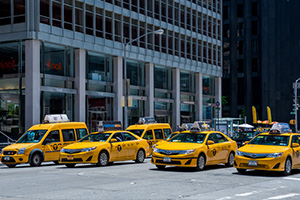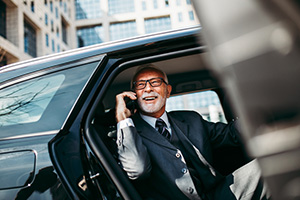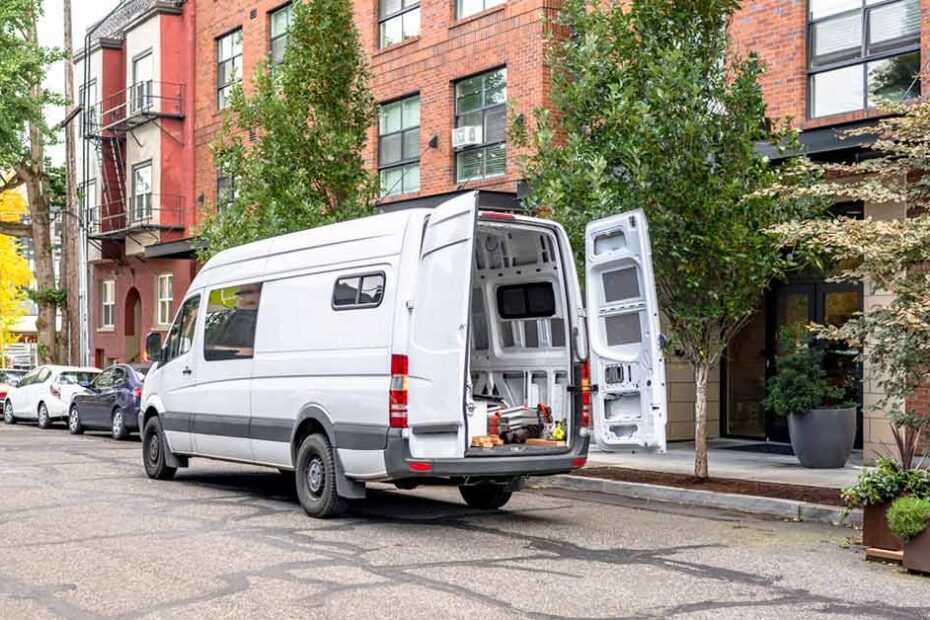Starting a limousine or black car business can be exciting and lucrative. However, it also comes with its own set of risks. As the owner of a livery service, you must protect your vehicles, drivers, passengers, and business itself with the right insurance coverage. With the proper insurance, your company could avoid the risk of financial ruin in the event of an accident or other unforeseen circumstances. Let’s explore the different insurance types available for your limousine or black car business.
Livery Vehicles We Insure

Transportation has evolved dramatically over the years. In 2021, the transportation industry grew by 9.9% and is expected to expand to cater to the growing demand of corporate travelers, tourists, and private households. However, spending more time on the road comes with the chance/ of more car accidents. Therefore any businesses that generate revenue from transporting people will need commercial auto insurance to protect themselves and their vehicle(s). The most common types of livery vehicles we insure are:
- Taxicabs
- Limousines
- Black Cars
- Town Cars
- Rideshare Vehicles
- Non-Emergency Medical Transportation (NEMT)
- Shuttle Buses
- Transit Buses
- Tour / Charter Buses
What Does Commercial Auto Insurance Cover?
The coverage provided by livery commercial auto insurance is similar to what you would find from a personal car insurance policy. Where it can differ is the coverage limits and a focus on protecting clients in the car, not just drivers. A livery commercial auto policy offers the following coverage:
- Bodily Injury: This type of liability insurance provides payment in cases of bodily injury or death resulting from an accident for which you or your driver are at fault. This may also include legal defense expenses should you be sued by the other driver.
- Property Damage: If your vehicle accidentally damages another person’s vehicle or property, this coverage helps pay for their repairs.
- Medical Payments: This coverage provides payment for any medical expenses that may arise due to an employee or a passenger traveling in your vehicle, regardless of who is at fault in an accident.
- Uninsured/Underinsured Motorist Coverage: Despite insurance being required in nearly every state, many still choose to drive without it or need more coverage. Uninsured motorist coverage provides payment for any medical expenses caused by a hit-and-run driver or an uninsured driver. Underinsured motorist coverage, when the at-fault driver has insufficient insurance to cover the damage caused, may be included depending on the type of policy.
- Comprehensive Coverage: Comprehensive insurance covers damage to your vehicle after a non-collision-related incident. The most common examples are theft, vandalism, and fire, and they may even cover damages to your vehicle that are done by your passenger(s).
- Collision Coverage: Collision insurance helps pay for damage to your vehicle caused by a collision with another vehicle or property.
How Are Commercial and Personal Auto Policies Different?

Both commercial and personal auto insurance covers liability, collision, comprehensive, medical payments, and uninsured/underinsured motorist exposures. However, a commercial auto insurance policy provides additional coverage that a standard personal auto policy cannot. For example, other drivers and vehicles not owned by your business may be covered in work-related incidents. Additionally, if you’re using your vehicle to transport people and are in an accident, your regular car insurance will most likely deny your claim.
Other Insurance Policies Livery Businesses Should Consider
As a livery business owner, it’s important to consider additional insurance policies beyond the standard commercial auto or fleet insurance. Here are a few to think about:

Business Owners Policy (BOP): Combines general liability insurance, commercial property insurance, and business income interruption insurance.

Professional Liability Insurance: Also referred to as errors and omissions, protects your business from the cost of faulty workmanship or breach of contract claims.

Workers’ Compensation: If you hire drivers, you will be required in almost all states to obtain workers comp. This insurance provides wage protection and coverage for medical expenses if you or your employees are hurt on the job.

Employment Practices Liability Insurance: This insurance policy cover legal defense costs and settlements if owners, managers, etc., are accused and found not legally guilty of discrimination, sexual harassment, wrongful termination, etc.
Speak With a Commercial Insurance Specialist at AIS
You’ve worked hard to build your business – protect it with the right Business Insurance coverage. At AIS Insurance, we can help you find the lowest rates and best coverage for your needs. Speak with one of our Commercial Insurance Specialists today at (866) 570-7335 for a quick and easy free quote.
The information in this article is obtained from various sources and offered for educational purposes only. Furthermore, it should not replace the advice of a qualified professional. The definitions, terms, and coverage in a given policy may differ from those suggested here. No warranty or appropriateness for a specific purpose is expressed or implied.


